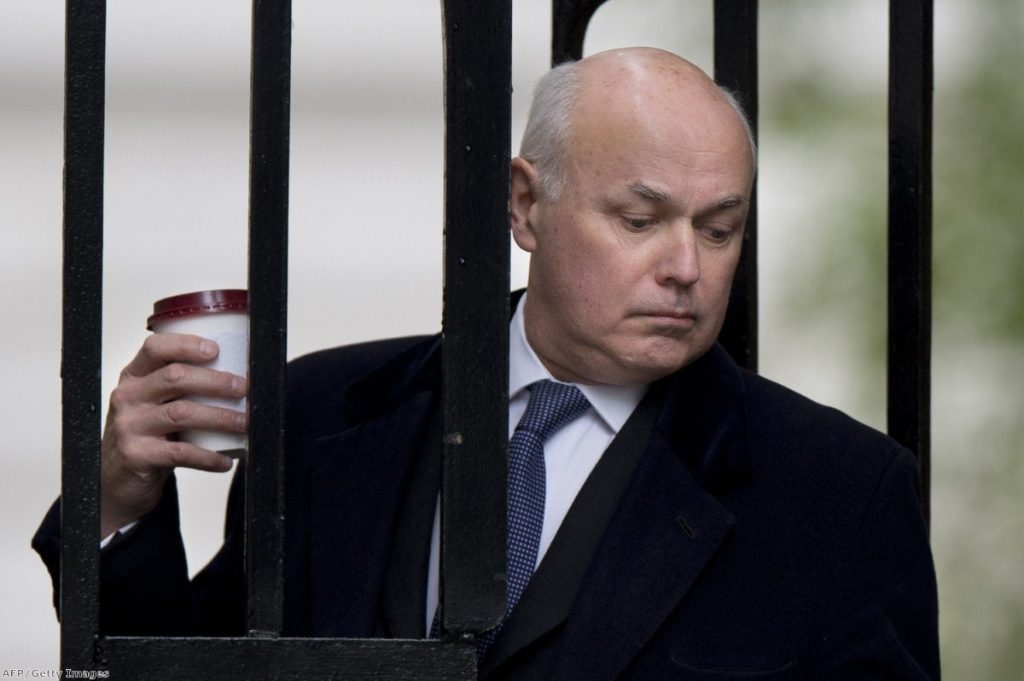Bedroom tax: Coalition majority cut to just 26
Two-thirds of the coalition's majority evaporated this evening as Labour's motion calling on ministers to scrap the bedroom tax was defeated.
The opposition claimed to have won the argument after reducing the coalition's majority, usually around 70, to just 26.
It came after a debate in which a group of five Liberal Democrat MPs broke ranks and signed a motion demanding reform of the bedroom tax.
Ahead of an opposition day debate on what the coalition calls the 'spare room subsidy', Greg Mulholland, Ian Swales, Adrian Sanders, Roger Williams and John Leech said no-one should be subject to the financial penalty unless they had refused a suitable alternative home.


Prominent Lib Dems Andrew George and party president Tim Farron were the only Lib Dems who actually rebelled, however.
"I understand what the government is trying to do. They are trying to cut council house waiting lists and equalise rent levels by extending something the last Labour government brought in for private sector homes," Leech said earlier.
"My main problem with the plans is that, because Labour didn't build enough social housing, there aren't enough houses for people to downsize into."
But even though the group were prepared to give the government a bloody nose, they were not willing to cooperate any further with Labour.
"Today's debate in the Commons is a non-binding vote which is meaningless in terms of changing government policy and it is disappointing that Labour are painting it out to be something it's not," Leech added.
The move came after delegates at the Liberal Democrat conference in Glasgow humiliated the leadership with a vote calling for an urgent review of the policy.
A source close to party leader Nick Clegg said the MPs were entitled to their opinion – but were nevertheless expected to vote with the government.
The debate was Labour's latest attempt to marshal opposition to the the bedroom tax, which cuts housing benefit for those deemed to have more rooms than they need.
But research suggests the majority of the 660,000 people affected have no smaller property to move to and that the policy could cost more than it saves.
Iain Duncan Smith, who masterminded the bedroom tax, did not attend the debate, in a move which sparked outrage on the Labour benches.
"It shows just how out of touch this government is that Iain Duncan Smith is not bothering to turn up to the Commons to explain why hard-pressed families at the sharp end of the cost-of-living crisis are being hit with the bedroom tax at the same time as millionaires are getting a tax cut," Rachel Reeves, Labour shadow work and pensions secretary, said.
"This vote gives MPs a chance to show where they stand and vote to repeal this unjust and unworkable policy.
"If Tory and Lib Dem MPs vote against repeal, we won't let them forget it – and we'll step up our campaign to elect a Labour government that will."
Duncan Smith is attending the Intergovernmental Conference on Youth Employment in Paris today, alongside over 20 heads of state, including Angela Merkel and François Holland.
Sources at the Department for Work and Pensions said Duncan Smith had written to Reeves to explain his diary commitments.
Work and pensions ministers Esther McVey and Steve Webb spoke for the government during the debate.
"It's this government and this coalition which is speaking for people in overcrowded accommodation," Webb told the Commons.
"We've heard of cases of people who need extra bedrooms for dialysis machines, for example."
Government ministers are very confident about the popularity of their welfare reforms, with most focus group and polling data suggesting the public want them to go even further.
But Labour believes the bedroom tax is one of the major exceptions. The policy is controversial for the way it cuts housing benefits even for people who do not have the option of moving to a smaller home.
It also disproportionately hits the disabled, with well over half those affected suffering from "significant difficulty in one or more areas of the individual's life", according to Department of Work and Pensions research.
Over 400,000 disabled people are thought to have been affected. The average hit to claimants' income is £720.
Some worry the policy is forcing claimants into leaving council property and moving into private rented accommodation, making the housing bill even higher.
Ministers say the policy could cut £23 billion from the housing benefit bill and encourage people back into work.
The government amendment, which pointed out a reversal of the policy would cost £500 million every year, was passed by 253 to 222 – a majority of 31.












